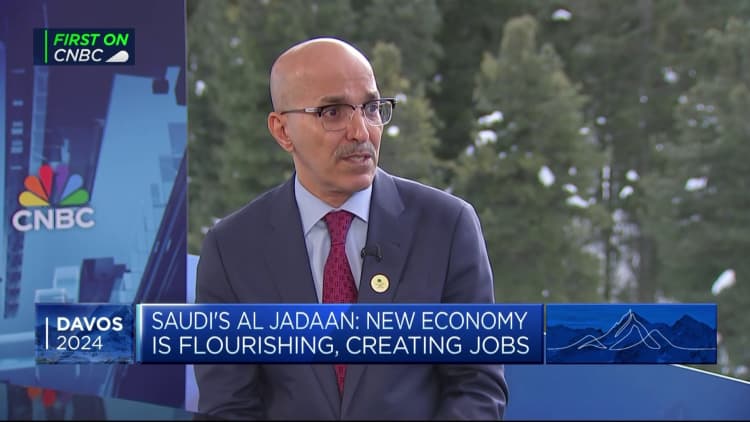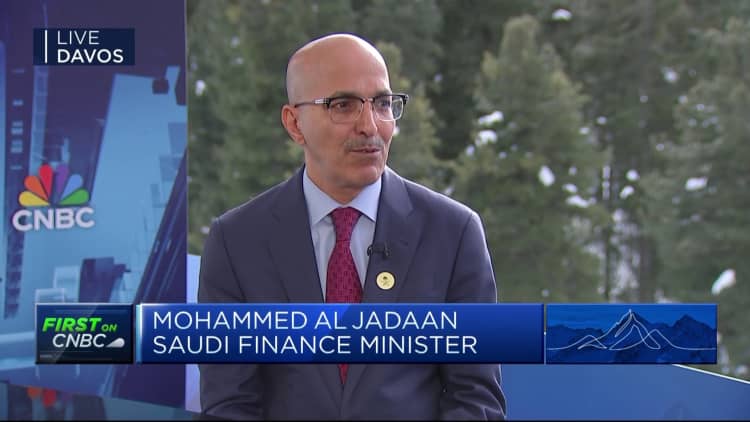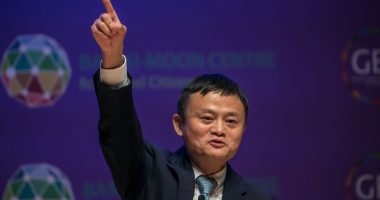A pop-up showcasing Saudi Arabia’s Neom development features among the most prominent on the Davos promenade in 2024.
CNBC
DAVOS, Switzerland — For years, the United Arab Emirates has been the Middle East’s go-to tech hub, thanks partly to its lack of personal income tax, flexible visa policies, and competitive incentives for international businesses and workers.
But Saudi Arabia is keen to capture some of the limelight, and talent, from its neighbor on the Arabian Peninsula — an ambition laid bare on the Davos Promenade this year.
The Saudi delegation staged a splashy presence on the city’s main street, including an expansive storefront dedicated to promoting Neom, a new urban development in northwestern Saudi Arabia; a space dedicated to the AlUla project, an initiative that’s part of the kingdom’s push to make the heritage city a global destination for tourists; a pop-up for the Saudi crown prince’s Foundation, MiSK, and its youth ambassadors called “majlis” — as well as two more Saudi chalets. It’s all part of the country’s Vision 2030 strategy of economic diversification.
The Neom showcase, which is one of this year’s most prominent on the promenade, seeks to show off the development’s prospects as a destination not only for tourism and luxury living but also innovation.
A Neom spokesperson told CNBC that the purpose of the amped up presence was to educate the investment community on the development and indicate that it is “open for business.”
It was a sentiment echoed by the country’s finance minister on Monday. Mohammed al-Jadaan told CNBC on the sidelines of the World Economic Forum that oil, as a percentage of gross domestic product, has plunged from 70%, to the range of 30% to 35%.
“That is significant,” said al-Jadaan, adding that the country has diversified into multiple other sectors, including tourism, technology and logistics.
His comments come amid a broader push to boost the kingdom’s profile as a global player and negotiator. In April, the capital of Riyadh is hosting a special World Economic Forum. Al-Jadaan noted that Riyadh has “a very strategic relationship with the U.S., and we have a close relationship with China, and we think we can bridge the gap.”

Neom is one of multiple so-called “giga” projects, which comprise Crown Prince Mohammed bin Salman’s Vision 2030 plan. Some focus on massive infrastructure investments, others on attracting fintech talent from the region and further afield.
Ian Bremmer, president and founder of Eurasia Group, a political risk consultancy, tells CNBC that he was skeptical when MBS first became crown prince, but he’s now a believer in the transition that MBS is driving.
“He’s driving entrepreneurship, he’s diversifying the economy … And there are a lot of people that are really interested in working in Saudi Arabia,” said Bremmer. “This is a guy that’s actually really tried to combat a lot of visible corruption in the royal family. And more broadly, he is actually improving education, especially for women.”
“We are well past the Khashoggi chapter on the Kingdom,” Bremmer added, referring to the operation to capture or kill journalist Jamal Khashoggi in 2018 in the Saudi Consulate in Istanbul.
Attracting talent
The Saudi economy recently eclipsed the $1 trillion threshold for the first time. The UAE’s economy is half that size, at just over $500 billion, according to data from the World Bank — though the UAE still has quite a significant head start, with hundreds of millions of dollars being invested into its Advanced Research Technology Centers, including hubs dedicated to generative artificial intelligence, cyber, quantum and biotech.
But the kingdom is also throwing a lot of money at its tech hub ambitions.
While much of the hype around MBS’s big investments center on the flashy megacities being built in the desert, regional experts in Davos tell CNBC that’s a sideshow to the core mission, which is to attract talent to feed a value creation cycle in AI.
The King Abdullah University of Science and Technology, or KAUST, is headed up by a UCLA mathematician who came to the school to begin attracting the talent to the country to help drive this innovation.
KAUST said to CNBC in a statement that it is “aligned with Saudi Arabia’s goal to be a global AI leader by 2030” and is moving toward that goal through strategic partnerships, singling out the establishment of a National AI Strategy, which provides support for startups, and AI-powered government services, as well as Riyadh’s International Center for AI Research and Ethics (ICAIRE) and Saudi Aramco’s AI research center that focuses on advanced projects in oil and gas.
“KAUST contributes through its own AI Initiative and hosts the SDAIA AI Center,” added the university, referring to the Saudi Data and Artificial Intelligence Authority, which oversees its efforts in the field of AI.
Cityscape of Saudi capital Riyadh.
Harri Jarvelainen Photography | Moment | Getty Images
Vera Futorjanski spent years living and working in Riyadh, where she was part of the team of people who initially started building the entrepreneurial ecosystem in Riyadh through the MiSK 500 accelerator.
“The big differentiator Saudi has, that in my opinion could lead to its success on the global stage including in the AI race, is the fact that it has the needed resources, flexibility on the regulations, and a large Saudi population who are young, educated, and hungry for innovation,” said Futorjanski, who is the CEO and founder of Veritas Ventures, a global strategic advisory firm.
Singapore and Israel
Jack Hidary is the CEO of SandboxAQ, a company spun off from Google’s parent Alphabet in 2022 that applies AI and quantum tech to key challenges in cyber, drug discovery and other areas. Hidary tells CNBC that the transformational impact of AI is “well beyond even the mobile phone.”
“In the Emirates and in Saudi Arabia, you have millions of people that need upskilling, particularly Saudi Arabia which has a much larger population,” Hidary said. “AI-driven personalized education and training, that is a game changer when it comes to that.”
Hidary, who was recently in Saudi Arabia, says that the UAE and Saudi Arabia are looking at countries like Singapore and Israel that have supported start-ups and are driven by technology.
“Singapore and Israel did not have any natural resources, but they had the natural resource of smart people driving technology and innovation, and that’s what Saudi Arabia and Emirates are now looking at very intently and driving programs to make that happen,” Hidary said.
— CNBC’s Karen Gilchrist contributed to this report.

Read More: World News | Entertainment News | Celeb News
CNBC










